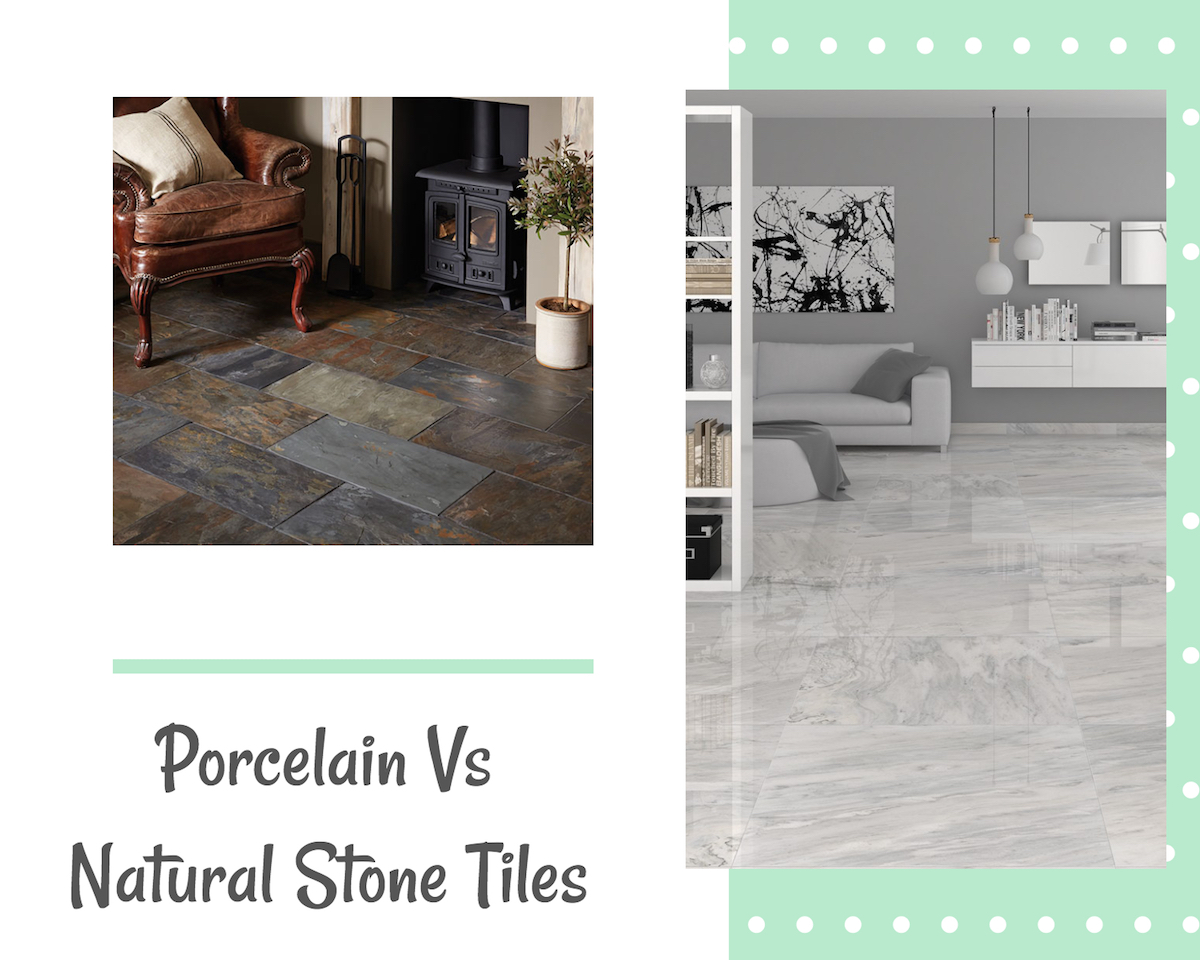For Your Home: Stones, Wooden Floor, Porcelain Tiles
Flooring tiles are typically available in a range of materials, but of them all, porcelain and natural stone, and wooden Floor are often among the most popular choices.

Porcelain Vs Natural Stone Tiles
Flooring tiles are typically available in a range of materials, but of them all, porcelain and natural stone and wooden Floor are often among the most popular choices. The problem is, it can be difficult for many homeowners to pick between these options.
Hometriangle helps you to compare, analyse and chose one among these 3 options by reviewing their advantages and disadvantages.
1. Cost.
Natural stone is among the most expensive tile materials available, followed by hard wooden floor, so in terms of cost, porcelain tiles will offer greater savings if cost is a concern for your project. Natural stone’s expense also extends into the installation phase of your project.
2. Aesthetic Values.
Stone has a look that’s crafted by nature, and as a result, every tile is unique, ageless and beautiful.
Wooden floor no doubt naturally beautiful, with natural patterns engraved into it gives an elegant and rich look to your space.
Porcelain, on the other hand, is a manufactured product that is created to mimic the look of natural stone or Hard Wood . To the untrained eye, some high quality porcelain tiles look and feel incredibly like natural stone or wooden floor but the expert will be able to distinguish the difference, as porcelain tiles as they are not individually unique.
3. Colour Variety of Porcelain Vs. Natural Stone, Hard Wood.
Most natural stone and Hard wood tiles have certain restrictions in colour patterns based on the variation of stone being considered.
Porcelain, although it tries to mimic natural stone’s look, is available in a much wider variety of colours, because it is a manufactured product.
4. Moisture Resistance.
Stone tiles tend to be porous and moisture-sensitive due to the material’s inherent defects, such as the inclusion of tiny fissures, holes, chips and weak spots. This makes it susceptible to staining, and as a result, natural stone tiles require regular sealing in order to resist moisture.
Wooden floors can not resist Moisturiser, very much susceptible to shrinking and swelling. Actual wooden floors can scratch, dent, warp, crack, and chip under the stress from high traffic areas (kitchen,living room,bathrooms), pets, and messes.
Porcelain, on the other hand, is virtually impervious to moisture. Unlike natural stone and Wooden Floor, porcelain has hardly any pores available for moisture to infiltrate. But the material’s lack of pores .
5. Maintenance of Porcelain Vs. Stone Tiles Vs Wooden Flooring.
Natural stone tile’s maintenance needs tend to be determined by your initial choices. For example, polished honed tiles have fewer maintenance needs than unpolished tiles. The type of stone also has an impact, as granite demands less maintenance than marble, which is a much softer stone.
Wooden Flooring comes under high maintenance category. Cleaning is difficult and has to be maintained regularly by vacuuming them.
As they are prone to moisture and pests It needs time to time Wooden polishing to keep the shine and looks of the same.
Porcelain is extremely resilient and therefore, it requires very little maintenance. As a result, those who want the aesthetics of stone without the material’s high maintenance problems often prefer porcelain tiles.
Also Read :